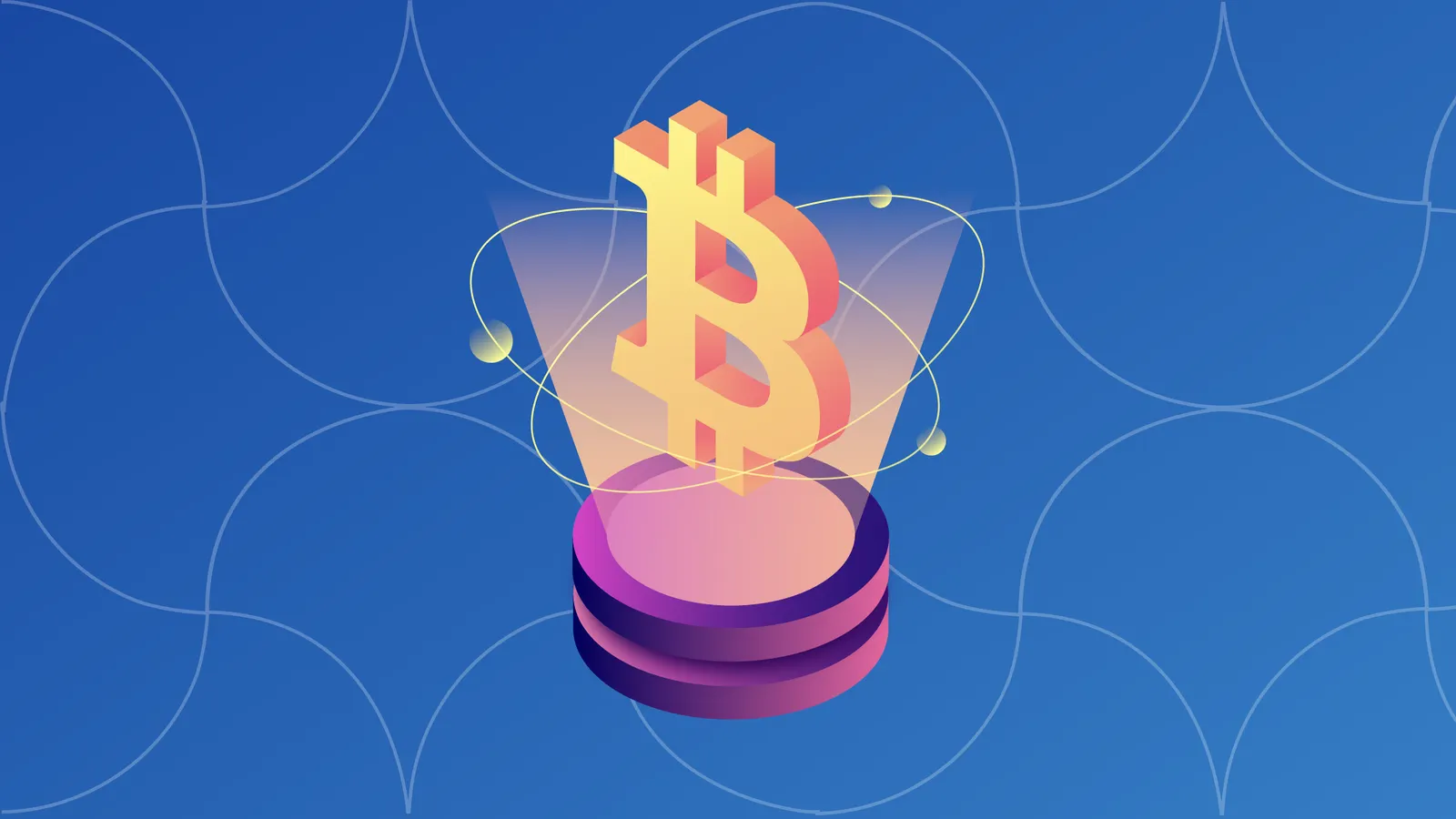—Bitcoin started it all.
It was the first cryptocurrency, and it launched an industry that now includes thousands. But who invented it, how does it work, and why is it so important?
What is Bitcoin?
Bitcoin (BTC) is a peer-to-peer cryptocurrency. Think of it as a digital token. You can't physically touch or hold Bitcoins, and all Bitcoin transactions are logged on a public, decentralized, immutable ledger.
Did you know?
The first official purchase using Bitcoin was for pizza in May 2010. Two pizzas from Papa John’s were exchanged for 10,000 BTC. May 22 is now known as Bitcoin Pizza Day.
Many found Bitcoin appealing because it was a new way to pay for goods and services that didn't rely on a centralized bank, government, or credit provider. These days, there are ongoing debates over whether Bitcoin really functions as everyday money, or more as a store of value (aka "digital gold").
Who invented Bitcoin?
No one really knows for sure. But the person (or persons) most directly responsible used the pseudonym Satoshi Nakamoto when they authored a white paper in October 2008 called "Bitcoin: A Peer-to-Peer Electronic Cash System." It was published on a small mailing list for cryptography fans.
In January 2009, the software to create the currency was released, followed shortly after by the first ever block mined on the network, known as the Genesis Block.
The first identifiable person to get involved in Bitcoin was a programmer named Hal Finney, who downloaded the software required to run it, and on January 12, 2009, received 10 Bitcoins—the first-ever Bitcoin transaction.
For a while, Satoshi Nakamoto and a few others mined currency on the network (read more about how mining works in our mining guide) before mysteriously disappearing, handing over control to another programmer named Gavin Andresen.
What's so special about Bitcoin?
Bitcoin had qualities that no other form of digital cash had ever gotten quite right:
- Decentralized: No one person or group owned or controlled it.
- Peer-to-peer: No third party (like a bank) needed to confirm and approve transactions.
- Borderless: Bitcoin could be moved easily across the world, for smaller fees and at faster speeds than traditional money transfers.
- Immutable: It's near impossible to change or tamper with blockchain transactions.
- Prevents double-spending: This was a problem many prior digital currencies had tried to crack before.
Did you know?
Around 25% of all Bitcoins have been lost from people losing their "keys," which you can think of as access codes. In November 2013, an IT consultant accidentally threw away a hard drive with the private keys to 7,500 Bitcoins. Whoops.
How is Bitcoin created?
Picture gold under the ground. We know it's there, but its value is hidden until a miner digs it up. In the Bitcoin world, a miner unearths Bitcoins by using expensive computers to solve cryptographic puzzles in real time that "mine" bundles of transaction records ("blocks") to the blockchain.
Miners get rewarded for their efforts with a small amount of new Bitcoins, and the mining reward is halved every four years as a measure to slow the creation of new Bitcoins. In Satoshi Nakamoto's white paper, they said only ever be 21 million Bitcoins could be mined—so at the current rate, all Bitcoins will be mined by somewhere around 2140.
How do you acquire Bitcoins?
There are two ways to acquire Bitcoin:
- You can buy some using fiat currencies ($, £, or € for example) at crypto exchange sites. You’ll need a digital wallet and you'll get a set of keys that you'll use to access your holdings.
- You can become a miner by buying a mining rig, though the equipment is very expensive, and it takes a while to become profitable.
What can you do with Bitcoin?
- Make purchases: An increasing number of mainstream companies accept payment in Bitcoin.
- Gamble: If you’re feeling lucky, a whole slew of gambling sites accept Bitcoin.
- Digital rights management: Bitcoin, and the blockchain protocol it’s built on, can be used to help musicians and artists control who has access to their IP.
- Protect identity: Thanks to the unique double-key system used in Bitcoin wallets, the Bitcoin blockchain can be used as a way to verify your identity online.
Did you know?
In 2013, the FBI made $48 million by selling 144,000 Bitcoins it had seized from criminals using the currency.
What is a Bitcoin wallet?
Like a regular wallet, it’s a place to keep your valuables—but digital. (Read more about crypto wallets in our handy guide.)
When it comes to Bitcoin, those valuables are your keys (strings of numbers and letters), held on a piece of software you can store on your phone, the web, or a computer. Or to be extra safe, you can write down your keys somewhere completely offline—aka "cold storage."
In order to buy and sell Bitcoin, you need both a private and a public key.
Your public key is what you share with other people so they can send you Bitcoin. Think of it as your address: It's OK for others to know it.
Your private key shouldn't be shared. When you trade, you use your private key to authenticate that it's you who's requesting to send or receive Bitcoin.
Did you know?
Bitcoin mining uses a lot of electricity. So much so that one transaction consumes nearly 4,000 times the energy used when processing a credit card transaction.
The Future
We know that all Bitcoins will be mined sometime around 2140. In the meantime, the future of Bitcoin and its value is uncertain, and fluctuates. The larger debate over Bitcoin's best use case also rages on. Will it become an everyday currency, or just be a store of value? Or maybe both?



